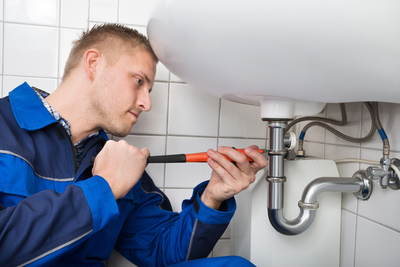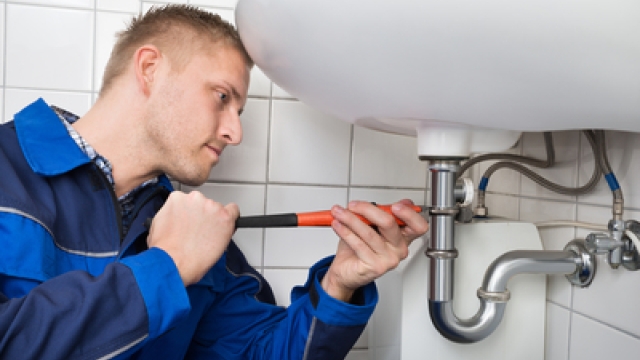Plumbing, the intricate system that fuels our modern lives, often operates behind the scenes, hidden from the limelight. Yet, its importance can never be understated, as it keeps our homes and establishments fresh, sanitary, and free from chaos. From the moment we turn on the tap to the efficient disposal of waste, plumbing is an essential aspect of our daily routines. While we may take its presence for granted, understanding the secrets and workings of this intricate network of pipes can provide us with a newfound appreciation for its significance.
At its core, plumbing encompasses the intricate system of pipes, fittings, valves, and fixtures that work together seamlessly to supply water to buildings and remove waste efficiently. It serves as the lifeblood of our infrastructure, enabling us to enjoy the simple comforts of clean water, reliable sanitation, and functional drainage systems. Without plumbing, our lives would be far more challenging, and our society would remain stagnant.
Delving deeper into the secrets behind plumbing, we discover a labyrinth of interconnected components that work tirelessly to provide us with this modern convenience. From the mains water supply that enters our homes to the intricate network of branch lines that distribute water throughout different rooms, every element plays a pivotal role. Ventilation pipes help maintain the delicate balance of air pressure within the system, while traps prevent foul odors and dangerous sewer gases from infiltrating our living spaces.
Furthermore, the secrets of plumbing extend beyond the essentials of water flow and sanitation. Technology has made its way into this essential service, allowing for sophisticated plumbing systems that are energy-efficient, sustainable, and adaptable to our ever-evolving needs. Water-saving fixtures, such as low-flow toilets and aerated faucets, not only reduce our environmental impact but also contribute to significant cost savings in the long run.
In the following sections, we will unravel the fascinating world of plumbing, exploring its history, key components, common problems, professional services, and innovative advancements. So, get ready to venture down the pipes as we shed light on the hidden secrets and unveil the marvels of plumbing that make our lives easier and more manageable.
History of Plumbing
Plumbing, an essential aspect of our modern-day lives, has a rich and fascinating history that dates back thousands of years. From ancient civilizations to the present day, plumbing has played a pivotal role in providing clean water supply and efficient wastewater drainage. Let’s dive into the secrets behind the evolution of plumbing.

Ancient Beginnings:
The origins of plumbing can be traced back to ancient civilizations, where the earliest known plumbing systems were developed. In ancient Mesopotamia, for example, the city of Ur had a remarkable plumbing system dating back to around 2200 BCE. This system consisted of clay pipes that transported water from the river to the city. Similarly, the Indus Valley Civilization in present-day Pakistan used gravity-fed plumbing systems around 2600 BCE to bring freshwater into their homes.-
Roman Ingenuity:
One of the most advanced plumbing systems of ancient times was established by the Romans. They developed an impressive network of aqueducts, which transported water over long distances using gravity. The Romans also introduced the use of lead pipes for plumbing, although this later posed health risks due to the toxicity of lead. Their remarkable plumbing infrastructure included public baths, fountains, and elaborate sewage systems that helped keep their cities clean and hygienic. -
Medieval Innovations:
During the Middle Ages, plumbing systems underwent significant transformations. In medieval Europe, many castles and monasteries had rudimentary plumbing systems, with water being supplied from nearby wells or rivers. However, it wasn’t until the 16th century that plumbing technology started to advance further. Copper and iron pipes began replacing lead, offering safer alternatives for transporting water. The invention of the flush toilet by Sir John Harington in 1596 also marked a significant milestone in the history of plumbing.
As we can see, plumbing has a long and storied history that spans across various civilizations. From the clay pipes of ancient Mesopotamia to the ingenious aqueducts of the Romans, plumbing has continually evolved to meet the needs of societies. In the next section, we will explore the modern advancements that have shaped the plumbing systems we rely on today. Stay tuned!
Importance of Plumbing Systems
Plumbing systems play a vital role in our daily lives, ensuring the smooth functioning of our homes and businesses. From providing access to clean water to facilitating proper waste disposal, plumbing is an essential part of modern society. Without this intricate network of pipes, valves, and fixtures, our lives would be significantly impacted. Here, we will delve into the importance of plumbing systems and explore how they contribute to our overall well-being.
Firstly, plumbing systems enable us to have a reliable supply of clean water. This precious resource is essential for drinking, cooking, cleaning, and personal hygiene. Without proper plumbing, accessing clean water would be a formidable challenge, jeopardizing our health and sanitation. Whether it’s taking a refreshing shower or watering our plants, plumbing ensures that water is readily available and easily accessible at our fingertips.
Secondly, plumbing systems allow for the efficient disposal of waste materials. Wastewater from our sinks, toilets, and showers is channeled away through a network of pipes to treatment facilities or septic systems, ensuring that it doesn’t contaminate our living spaces. Efficient plumbing systems prevent the spread of diseases and maintain a hygienic environment for all inhabitants.
Lastly, plumbing systems contribute to the overall comfort and convenience of our daily lives. Imagine a world without functioning toilets, showers, or kitchen sinks. Plumbing systems provide us with the basic amenities we rely on to uphold our quality of life. Additionally, modern advancements in plumbing technology have introduced features such as water-efficient fixtures, which not only conserve resources but also save us money in the long run.
In conclusion, the importance of plumbing systems cannot be overstated. From the access to clean water, efficient waste disposal, to the comfort and convenience they provide, plumbing systems are an integral part of our modern society. It is essential to recognize and appreciate the complex infrastructure that lies beneath our feet, ensuring that our homes and businesses function seamlessly.
Common Plumbing Issues
- Leaky Faucets and Dripping Taps
One of the most common plumbing issues that many homeowners encounter is a leaky faucet or dripping tap. Not only can these annoying drips keep you up at night, but they can also waste a significant amount of water over time. Leaking faucets are often caused by worn-out washers or O-rings within the tap mechanism. This issue can usually be fixed by replacing the faulty components or tightening any loose connections.
- Clogged Drains
Clogged drains can be a major hassle in any household. Whether it’s a blocked kitchen sink or a backed-up shower drain, dealing with the aftermath of a clog can be frustrating. Common causes of clogged drains include food particles, grease buildup, hair, soap scum, and foreign objects. Depending on the severity of the clog, you may try using a plunger, a drain snake, or chemical drain cleaners. However, it’s important to exercise caution and avoid using harsh chemicals that may damage your plumbing system.
- Running Toilets
A running toilet is not only irritating to listen to, but it can also waste a significant amount of water. This plumbing issue is often caused by a faulty flapper or a problem with the fill valve. If you hear your toilet continuously running, it’s essential to address the issue promptly. First, check the flapper seal and replace it if necessary. If that doesn’t resolve the problem, you may need to replace the fill valve or seek professional help.
These are just a few common plumbing issues that homeowners may face. While some problems can be fixed easily with a little know-how and basic tools, others may require the expertise of a professional plumber. By understanding these common plumbing issues, you’ll be better prepared to tackle them when they arise and potentially save both water and money in the long run.

